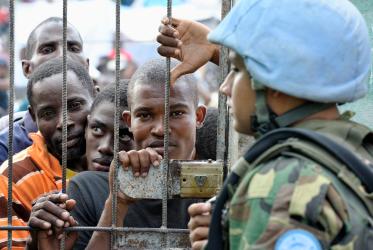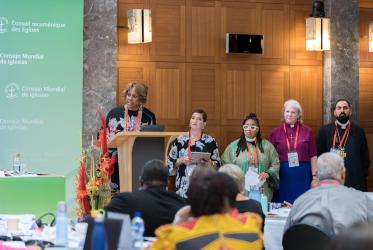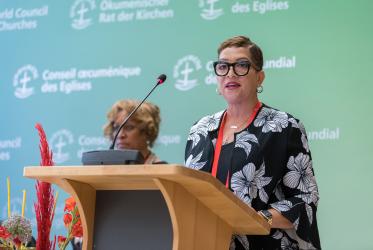United Church of Canada
Eglise unie du Canada
The United Church of Canada came into being in 1925, bringing together the Congregational, Methodist and most Presbyterian (71 percent) churches in Canada. The new church began as, and remains, the largest non-Roman communion in Canada. Besides the members of its local congregations, the UCC has another million or more adherents among the Canadian population. In 1925, the UCC dedicated itself not only as united, but as a uniting church. In 1968, the Canada Conference of the Evangelical United Brethren Church joined the church. The United Church of Canada has a history of involvement in justice issues both in Canada and overseas, much of this coming from its Methodist and Reformed traditions of caring for people who suffer economic and social injustice.
Canadian society is multicultural and multifaith. It is a culture in which the pervasive economic worldview impacts relationships, values, identities, and understanding of church. The context of globalization and empire includes living next door to the super-power, with increased economic integration through free trade and continental security arrangements. Through advocacy and outreach the church ministers to those marginalized in this economy of exploitation, in addition to providing the traditional ministries and pastoral care. A growing area of work is with ethnic ministries and integration of churches brought to Canada by new immigrants; ministries in French are also an important focus. Meanwhile, in rural areas, the church accompanies local communities that continue to shrink.
Continuing the traditions of the earlier denominations, the church has spoken out strongly and consistently on controversial issues. Current issues receiving widespread attention include the church's support for equal marriage for same-sex couples, Aboriginal justice and the legacy of abuse in church-supported residential schools that housed Aboriginal students, systemic justice issues (race, gender, economic inequalities, etc.), ecology, biotechnology and food security issues (including climate change, genetically modified food, water, land use), and the rights of refugees. In all such matters, educational resources are provided for church groups and official positions are made known to governmental or other agencies. Working in a framework of "whole world ecumenism" focused on the mending of the world, the church has also supported processes of interchurch and interfaith dialogue, and published important statements on Jewish-United Church and Muslim-United Church relations.
After three decades of collaboration among Canadian churches on a wide variety of social justice issues in Canada and overseas, the work of ten inter-church coalitions was brought together in 2001 in a new coalition, KAIROS: Canadian Ecumenical Justice Initiatives. The current agenda and mandate of KAIROS reflect dedication to action in the following priority areas: international human rights; global economic justice (including corporate social responsibility and global trade and debt issues); ecological justice; Canadian social development (including anti-poverty advocacy and funding, health care and refugees/ migrants); Aboriginal rights; global partnerships; education and animation.





